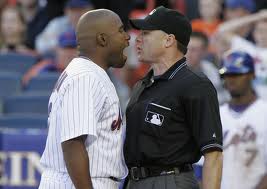Tennis clubs have their failings
Tennis clubs are my existence. I couldn't live without them, because they put on great tournaments at great facilities. I travel around from site to site, and each time I am grateful for the richness of possibility that is all around me.
An academy may be a better solution.
The irony is that the population in general does not realise the value of facilities, in particular sporting facilites. In many countries facilities are provided by the state, and the people are expected to organise committees and structures around the facilities in order to exploit them. In France this is the case, for both hall and outside courts.
So that is the first thing to watch out for. You go into a clubhouse and the person who receives you, volunteer or committee member, welcomes you as if they were some town dignitary, who has the great honour of your participation in their tournament. This is very flattering, but not always pleasant. They will tell you about the whole history of the site, to the barrowloads of shingle they had to shovel for the paths, to the current numbers of juniors in the tennis school. In every club you get pretty much the same scenario.

Club dignitary = tournament referee
I'm there to play a tournament with my players. I'm on a tight schedule. I want my players to get accustomed to the site as quickly as possible and get the match moving. Most of these town dignitaries have travelled the shortest distances to get to their club and don't realise that every day I'm doing at least a 100 km round trip. They don't realise that, what I want above all, is a fair match for my player, who profits from the experience. My exploitation of the facility and event is largely unappreciated by the dignitary.
In tennis associations you get certain categories of people : -
. local businessmen, not necessarily implicated in tennis affairs, but often with some sort of honorary postion, and sponsoring in some small way. This sponsorship is seen as symbolic, an example to others to contribute sums, and their names, to the club.
. people who have time to play. In fact they don't play that much, but these include teachers (long holidays), functionaries (short working hours), a few housewives (in fact many women work full time in my area), and pensioners.
. children, often over half of the registered players in an association are juniors. 90 % of them never ever hit a tennis ball outside of their one hour a week training lesson, and about 60% quit the junior training by the end of the second year. Some juniors, not always the most sporty, or most motivated, do manage to make teams by about the third year of their inscription, but due to school pressures and decline of motivation, most stop around the time of puberty. So the club is awash with beginner juniors, and bare of high performance juniors. This is a crazy waste of ressources. Just think how much these children could achieve if they were installed, and kept, in the "competitive" game from the earliest age.
. a handful of true sportspeople, those who have committed a good part of their lives to sport, training, and participating in club and individual competitions. In my club of 150, there are only about fifteen of these types, only one a woman! These sportspeople understand who are their best, most valued, practice partners, so there is not much mixing among this group. Two or three of them will always play with each other, and not break out of the group. The barrier is built up on both sides.
. unknowns. Amazingly there are people who pay their memberships and never play or attend any functions of any type. Presumably these people are putting "Member of Roland Garros Tennis Club" on their CVs, and wielding some influence somewhere with it.

What is a tennis player?
That's it. This is quite a motley mix of people, and almost always very inadequately organised. Luckily the junior training is frequently coordinated by a "pro", a qualifed coach, although he often has a day job too. French associations can pay a low salaried pro to do some hours on their courts, but frequently he is there to organise the volunteer teachers, who only have the level one coaching qualification. Most of these people don't in fact play themselves that much. They get roped in to a coaching course, do it for a couple of years, realise how futile and dissatisfying it all is, and stop. The level of their coaching is disastrous, hence the high numbers of children who stop tennis almost as quickly as they have started it.
What are your coaches' motivations?
The Committee is often headed by a President, a true enthusiast, who has above all, time. He ends up doing a lot of the administration and other drudgery himself, because everyone else on the Committee has less time than him. He also knows that if he asks anyone to do anything, they won't do it properly, nor with the right élan. So the President is a bit of a hero. He can quickly weary of his pedestal, and he too will drift off into oblivion, unless the club really does become his life.
This Committee may be strategically divided into areas of responsibility - juniors, sponsorships, clubhouse, events, etc., but the members themselves don't drive this as if they were driving a business. It is very ramshackle.

Any stories from your clubs ?
I haven't painted a very appealing picture. I love, really do love, tennis, but tennis clubs are so disappointing.
I'll just give you a couple of quick examples of how this manifests itself.
In one of my German clubs thay always had a campaign every summer to recruit new adult members who were discovering tennis as a new sport. An ad was put in the paper and these people would be given a few lessons with the local pro, and a cheap summer membership to get them going. The problem starts when these people finish their introductory training. Who do they play with now? They have come into the complex completely blind, didn't know anyone at the outset, and still don't know anyone now. They don't belong to the housewife/sporty/town dignitary/local businessmen categories, so they have no social motivation to take out a full membership. These people drift away.
In my local tennis centre, a talented sporty junior, with non-tennis parents, who watches endless tennis on his bedroom TV, managed to get through initial junior training programmes. Through some encouragement, he has acquired a few ranking points in tournaments. He spends most of the year stuck in his bedroom watching tennis instead of playing it. None of his "friends" from the first tennis lessons are still members. There are no juniors of any kind of his age left in the club. He is too young to be picked up by some other adult member to play with him regularly. He loves his tennis, but even though he has been a club member, and consequently, a member of the National Federation for ten years, his tennis is going nowhere.
There is no training organised for his age or level. Or, if it were, his parents won't pay because it will be with adults, not part of the sponsored junior section training. They refuse to suddenly give out € 500 per year for training, when their son wouldn't be happy in the group anyway.
Maybe clubs should look at themselves a bit!
A child needs empowerment
Tour Coach -
on this site!
